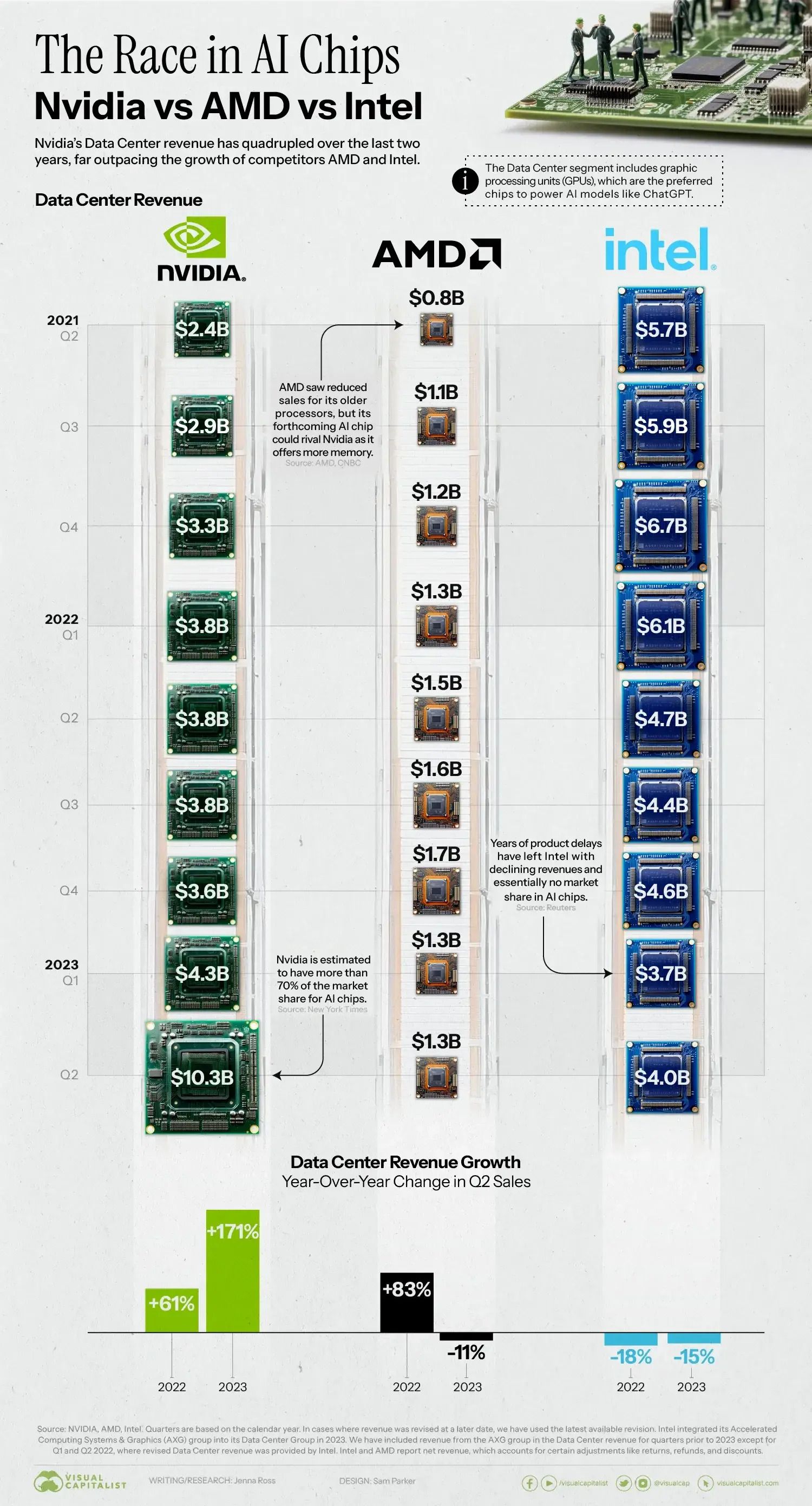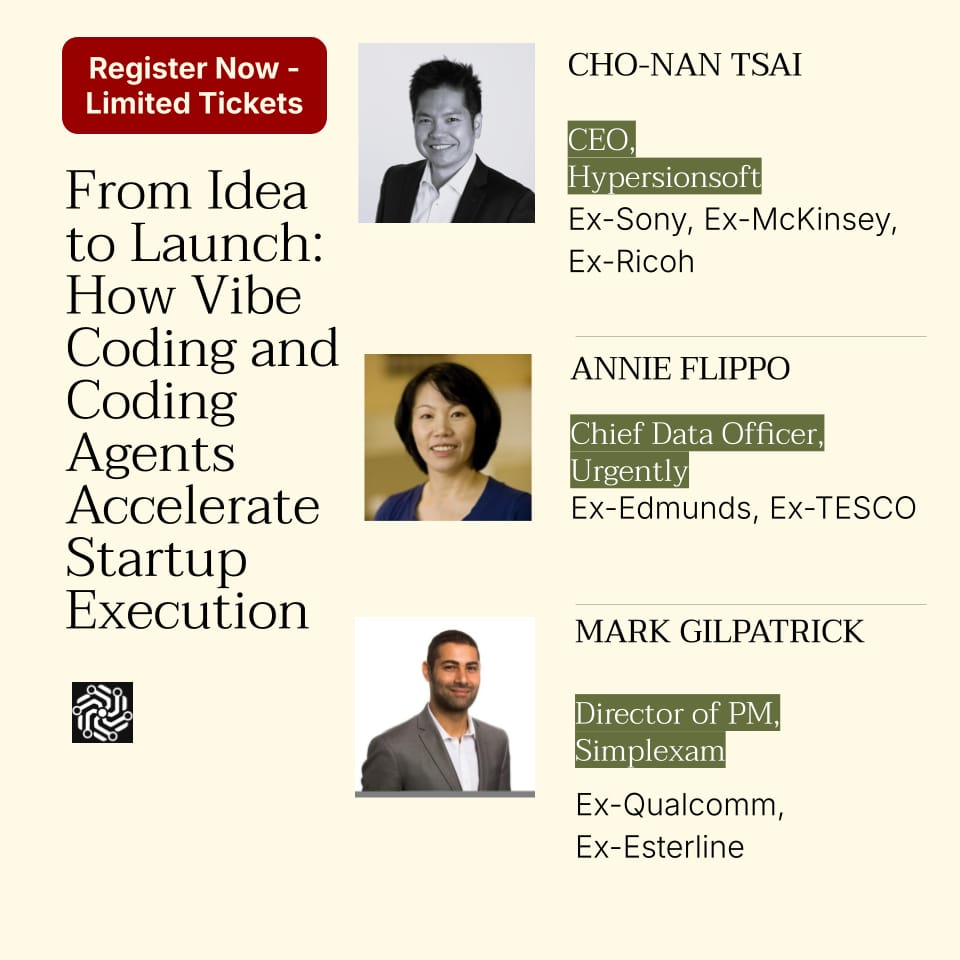- FutureOrg AI Newsletter
- Posts
- FutureOrg AI: AMD is getting ready to fight Nvidia
FutureOrg AI: AMD is getting ready to fight Nvidia
Professionally curated AI newsletter, tailored for business executive, entrepreneurs and business owners.
Here is the latest on AI:
AI Chip: AMD’s Lisa Su has plans for winning the chip war
Vibe Coding: OpenAI's highly anticipated coding assistant stumbles out of the gate
INSIDE THIS WEEK:
The Chip War's Quiet Revolutionary
Lisa Su is betting she can crack Nvidia's AI monopoly. Here's how she's doing it.
I'll confess something: I've always had a soft spot for the underdog. And in the world of semiconductors, AMD has been the scrappy challenger for as long as I can remember. While everyone's been watching Nvidia's meteoric rise, another story has been unfolding in Austin, Texas. Lisa Su, AMD's CEO, is orchestrating what might be the most audacious challenge to Silicon Valley dominance since the browser wars of the 1990s—and frankly, I'm rooting for her.
The numbers tell part of the story: Under Su's decade-long leadership, AMD has surged from near-bankruptcy to a $300 billion valuation. But the real drama is just beginning.

The Underdog's Gambit
Su's pitch is deceptively simple: Nvidia's chips are expensive and scarce. AMD's new AI accelerators, unveiled this summer, promise to be faster and cheaper. In the high-stakes world of artificial intelligence, that's either revolutionary—or wishful thinking.
The timing couldn't be more critical. As U.S.-China tech tensions escalate and export controls tighten, the semiconductor landscape is reshaping itself. Companies like OpenAI, Google, and Meta are suddenly very interested in having alternatives to Nvidia's chips.
Su seems to thrive on this pressure. Walking through AMD's testing facilities, she radiates the focused intensity of someone who knows she's playing for keeps. "Innovation thrives on an open ecosystem," she told me recently, a not-so-subtle dig at Nvidia's grip on the market.
The Family Business
Here's a detail that would make Hollywood screenwriters salivate: Su and Nvidia's Jensen Huang are distant relatives. When I asked Su about this, she deflected with a smile that suggested she'd rather let her chips do the talking.
What's Next
AMD still faces a mountain to climb—Nvidia's $4.4 trillion market cap dwarfs AMD's valuation by more than 10 to 1. But Su has pulled off one remarkable turnaround already. In the world of semiconductors, where fortunes can shift with a single breakthrough, that experience might matter more than market cap.
The question isn't whether AMD can compete with Nvidia tomorrow. It's whether Su's vision of an open AI ecosystem can reshape an industry that's increasingly defined by whoever controls the chips.
Vibe coding: reshaping how we think about programming
For decades, software development has required painstaking attention to syntax, debugging skills and years of technical training. But a new approach emerging in 2025 is challenging that model, allowing people to create applications by simply describing what they want in plain English.
The method, known as "Vibe Coding," represents a fundamental shift in how software is created. Rather than writing code line by line, developers and even non-programmers can now tell an artificial intelligence system what they need, then refine the results through conversation.
"Create a timer web app in JavaScript," a user might say. The AI generates the code. "Add error handling," they might follow up, or "Switch to a dark theme." The system adapts accordingly.
From Technical Craft to Creative Direction
The approach was popularized by Andrej Karpathy, a prominent AI researcher, who describes it as "fully giving in to the vibes" — focusing on the big picture and creative goals while leaving implementation details to artificial intelligence.
This shift is being accelerated by the release of GPT-5, OpenAI's latest language model, which the company says achieves significant improvements in code generation. According to OpenAI, the system scores 74.9% on SWE-bench Verified, a benchmark for real-world software engineering tasks, and can often create functional websites from a single prompt.
The implications extend beyond professional software development. Vibe Coding could democratize app creation, allowing entrepreneurs, artists, and other non-technical professionals to build digital tools without traditional programming knowledge.
Questions About Quality and Control
However, the approach raises questions about code quality and developer oversight. Traditional programming emphasizes understanding every line of code, while Vibe Coding asks developers to trust AI-generated results they may not fully comprehend.
Some software engineers worry about debugging complex applications built this way, or maintaining code they didn't write themselves. Others see it as a natural evolution of programming tools, comparing it to how calculators didn't eliminate the need for mathematicians but changed how they work.
The technology also reflects broader questions about AI's role in creative and technical work. As language models become more capable, they're being applied to tasks once thought to require distinctly human skills.
Looking Ahead
For those curious about this evolving landscape, industry experts will be discussing Vibe Coding and its implications at an upcoming webinar on September 4th. The event promises to explore both the opportunities and challenges of this new programming paradigm.
Whether Vibe Coding represents a temporary trend or a lasting transformation in software development remains to be seen. But its growing adoption suggests that the relationship between humans and computers in the creative process is continuing to evolve in unexpected ways.
As one developer recently put it: In 2025, the question isn't whether you can code, but whether you can communicate what you want to build.
A Vibe Coding webinar takes place September 4th. Registration details below
That's all for this week's FutureOrg AI newsletter. Remember, staying informed about AI developments isn't just about keeping up—it's about staying ahead. Have a great weekend, and we'll see you next week!
ps. If you like this newsletter, please forward along to a friend!
pps. If you want to subscribe, please sign up here.
